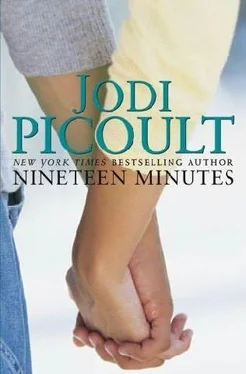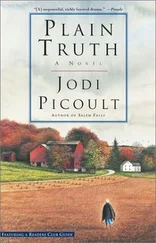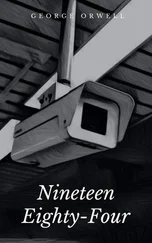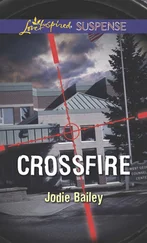“Does that mean he was living in a fantasy world on March sixth?”
“Absolutely not. If he had been, he wouldn’t have been planning his attack as rationally and methodically.”
Diana turned. “There’s been some evidence, Doctor, that Peter was the subject of bullying in school. Have you reviewed that information?”
“Yes, I have.”
“Has your research told you anything about the effect of bullying on kids like Peter?”
“In every single school shooting case,” Uppergate said, “the bullying card gets played. It’s the bullying, allegedly, that makes the school shooter snap one day and fight back with violence. However, in every other case-and this one, in my opinion-the bullying seems exaggerated by the shooter. The teasing isn’t significantly worse for the shooter than it is for anyone else at the school.”
“Then why shoot?”
“It becomes a public way to take control of a situation in which they usually feel powerless,” Curtis Uppergate said. “Which, again, means it’s something they’ve been planning for a while.”
“Your witness,” Diana said.
Jordan stood up and approached Dr. Uppergate. “When did you first meet Peter?”
“Well. We haven’t officially been introduced.”
“But you’re a psychiatrist?”
“Last time I checked,” Uppergate said.
“I thought the field of psychiatry was based on gaining a rapport with your client and getting to know what he thinks about the world and how he processes it.”
“That’s part of it.”
“That’s an incredibly important part of it, isn’t it?” Jordan asked.
“Yes.”
“Would you write a prescription for Peter today?”
“No.”
“Because you’d have to physically meet with him before you decided whether he was an appropriate candidate for that medicine, correct?”
“Yes.”
“Doctor, did you get a chance to talk to the school shooters from Thurston High?”
“Yes, I did,” Uppergate said.
“What about the boy from Paducah?”
“Yes.”
“Rocori?”
“Yes.”
“Not Columbine…”
“I’m a psychiatrist, Mr. McAfee,” Uppergate said. “Not a medium. However, I did speak at length to the families of the two boys. I read their diaries and examined their videos.”
“Doctor,” Jordan asked, “did you ever once speak directly to Peter Houghton?”
Curtis Uppergate hesitated. “No,” he said. “I did not.”
Jordan sat down, and Diana faced the judge. “Your Honor,” she said. “The prosecution rests.”
“Here,” Jordan said, tossing Peter half a sandwich as he entered the holding cell. “Or are you on a hunger strike, too?”
Peter glared at him, but unwrapped the sandwich and took a bite. “I don’t like turkey.”
“I don’t really care.” He leaned against the cement wall of the holding cell. “You want to tell me who peed in your Cheerios today?”
“Do you have any idea what it’s like to sit in that room and listen to all these people talk about me like I’m not there? Like I can’t even hear what they’re saying about me?”
“That’s the way the game’s played,” Jordan said. “Now, it’s our turn.”
Peter stood up and walked to the front of the cell. “Is that what this is to you? Some game?”
Jordan closed his eyes, counting to ten for patience. “Of course not.”
“How much money do you get paid?” Peter asked.
“That’s not your-”
“How much?”
“Ask your parents,” Jordan said flatly.
“You get paid whether I win or lose, right?”
Jordan hesitated, and then nodded.
“So you don’t really give a shit what the outcome is, do you?”
It struck Jordan, with some wonder, that Peter had the chops to be an excellent defense attorney. That sort of circular reasoning-the kind that left the person being grilled hung out to dry-was exactly what you aimed for in a courtroom.
“What?” Peter accused. “Now you’re laughing at me, too?”
“No. I was just thinking you’d be a good lawyer.”
Peter sank down again. “Great. Maybe the state prison offers that degree along with a GED.”
Jordan reached for the sandwich in Peter’s hand and took a bite. “Let’s just wait and see how it goes,” he said.
A jury was always impressed by King Wah’s record, and Jordan knew it. He’d interviewed over five hundred subjects. He’d been an expert witness at 248 trials, not including this one. He had written more papers than any other forensic psychiatrist with a specialty in post-traumatic stress disorder. And-here was the beautiful part-he’d taught three seminars that had been attended by the prosecution’s witness, Dr. Curtis Uppergate.
“Dr. Wah,” Jordan began, “when did you first begin to work on this case?”
“I was contacted by you, Mr. McAfee, in June. I agreed to meet with Peter at that time.”
“Did you?”
“Yes, for over ten hours of interviews. I also sat down and read the police reports, the medical and school records of both Peter and his older brother. I met with his parents. I then sent him to be examined by my colleague, Dr. Lawrence Ghertz, who is a pediatric neuropsychiatrist.”
“What does a pediatric neuropsychiatrist do?”
“Studies organic causes for mental symptomology and disorder in children.”
“What did Dr. Ghertz do?”
“He took several MRI scans of Peter’s brain,” King said. “Dr. Ghertz uses brain scans to show that there are structural changes in the adolescent brain that not only explain the timing of some major mental illnesses like schizophrenia and bipolar disorder, but also give biological reasons for some of the wild conduct that parents usually attribute to raging hormones. That’s not to say that there aren’t raging hormones in adolescents, but there’s also a paucity of the cognitive controls that are necessary for mature behavior.”
Jordan turned to the jury. “Did you get that? Because I’m lost…”
King grinned. “Layman’s terms? You can tell a lot about a kid by looking at his brain. There might actually be a physiological reason why, when you tell your seventeen-year-old to put the milk back in the fridge, he nods and then completely ignores you.”
“Did you send Peter to Dr. Ghertz because you thought he was bipolar or schizophrenic?”
“No. But part of my responsibility involves ruling those causes out before I begin to look at other reasons for his behavior.”
“Did Dr. Ghertz send you a report detailing his findings?”
“Yes.”
“Can you show us?” Jordan lifted up a diagram of a brain that he’d already entered as evidence, and handed it to King.
“Dr. Ghertz said that Peter’s brain looked very similar to a typical adolescent brain in that the prefrontal cortex was not as developed as you’d find in a mature adult brain.”
“Whoa,” Jordan said. “You’re losing me again.”
“The prefrontal cortex is right here, behind the forehead. It’s sort of like the president of the brain, in charge of calculated, rational thought. It’s also the last part of the brain to mature, which is why teenagers often get into so much trouble.” Then he pointed to a tiny spot on the diagram, centrally located. “This is called the amygdala. Since a teenager’s decision-making center isn’t completely turned on yet, they rely on this little piece of the brain instead. This is the impulsive epicenter of the brain-the one that houses feelings like fear and anger and gut instinct. Or in other words-the part of the brain that corresponds to ‘Because my friends thought it was a good idea, too.’”
Most of the jury chuckled, and Jordan caught Peter’s eye. He wasn’t slumped in the chair anymore; he was sitting up, listening carefully. “It’s fascinating, really,” King said, “because a twenty-year-old might be physiologically capable of making an informed decision…but a seventeen-year-old won’t be.”
Читать дальше












